(This is a condensed version of the corresponding Japanese article containing only the primary points made by the four keynote speakers.)
The Asia Peace Conference was held September 3-4, 2024. The first open session of the conference was held in the afternoon of the 4th, and was moderated by former Japanese Ambassador to China Yuji Miyamoto.
The session - titled Is Northeast Asia heading towards to a New Cold War? - opened with keynote speeches by one representative from each of the countries taking part: China, Japan, the Republic of Korea, and the United States of America.
Not a "New Cold War" but a "New Great Game"
Admiral (ret.) Gary Roughead, former US Chief of Naval Operations, joined the conference virtually from the US. Roughead began his address by expressing his dislike for the term "New Cold War," and cited various differences between the current situation and the situation in place during the Cold War.
He explained that in his opinion the current situation and the issues being faced are the result of turbulence within the "old empires," so he believes that rather than a "New Cold War," it would be more accurate to describe it as a "New Great Game."
The term "Great Game" was used to describe the 19th-century rivalry between the British and Russian empires for control of Central Asia. Roughead explained that the current political landscape does not have all of the same characteristics as the original however, as for one, the US is in the mix alongside former Eurasian imperial powers.
Roughead went on to explain that the current conflict is not only a military one; there is also a large technological aspect. He predicts that innovation in liberal democracies will continue to grow, but growth won't be as dramatic in countries with different political systems. He criticized Russia for lagging behind, and believes that strengthening its ties with North Korea will not help Russia avoid eventual tragedy.
Roughead made a prediction about the future security environment in Northeast Asia. Historically speaking, new US administrations have faced international challenges within a year of their inaugurations, and Roughead warned that Japan will face similar provocations in 2025 after the new leaders takes the reins.
He also pointed out that the resilience of American unity should not be underestimated, regardless of how chaotic its political landscape may appear, and that it would be unwise to hope that the importance of Northeast Asia will fade due to distractions in the Middle East or Europe. He pointed to the stability of the US-Japan alliance and the development of AUKUS and emphasized that this will not change in the future.
Regarding China, Roughead explained that the conflict between it and the US is sure to continue as there is bipartisan agreement in the US to take a hard stance against China, and that conflict will primarily be seen in trade and technology, and over Taiwan and the South China Sea. China itself is worried about its own domestic economy, and warns that becoming too embroiled in such a conflict will only lead to a poor future. Roughead expressed hope for the role India can play in QUAD to serve the cause of liberal democracy.
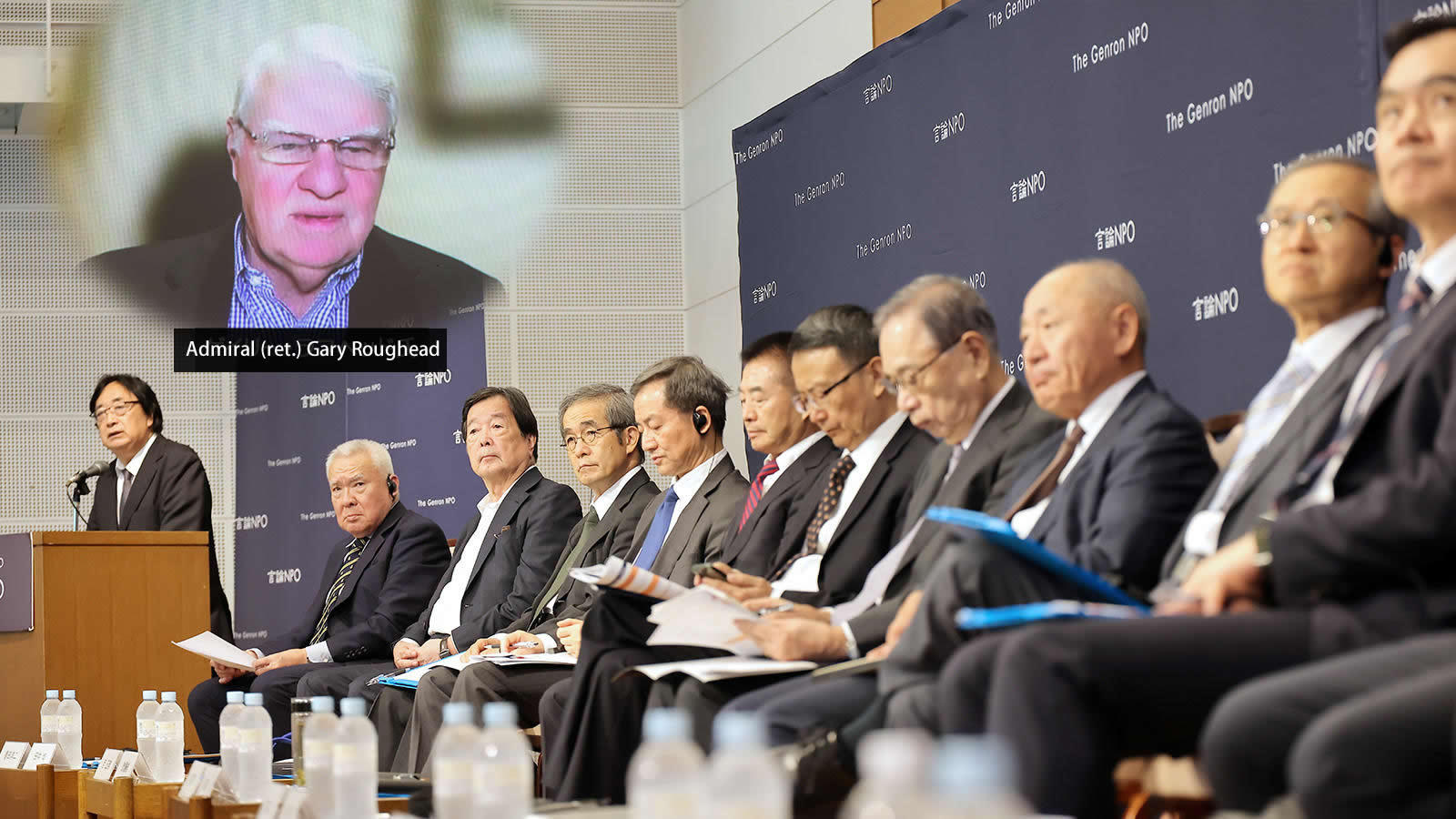
Three clear indicators of a coming New Cold War
Sungnam Lim, former First Vice Foreign Minister of the Republic of Korea, responded to the main question for the session by stating that while the region is not there yet, it is heading toward a New Cold War. He offered three points to support his argument.
First, he pointed out that the strategic competition between the US and China shows no sign of easing, and predicted that the "uneasy relationship" between the two countries will continue for at least twenty-five years, regardless of who wins the next election in the US.
Next, he turned to the Treaty on Comprehensive Strategic Partnership between Russia and North Korea, which he described as essentially a reward for North Korea's support of Russia's invasion of Ukraine. He noted that elements of it are reminiscent of the bilateral ties built during the Cold War era. There are also concerns that Beijing might begin building a military-focused relationship with Moscow and Pyongyang.
He also warned that without a meaningful channel of communication between Seoul and Pyongyang, or between Washington and Pyongyang, the possibility of a clash due to a misunderstanding cannot be ignored. He stated that a lesson can be learned from history here, pointing to the reasons why a hotline between the US and the Soviet Union was established during the Cold War.
While these issues do point to the potential for a New Cold War, Lim still believes that such a situation can be avoided through sharing wisdom and implementing creative strategies.
Lim also pointed out that there are a number of difficulties surrounding the threat from North Korea. He acknowledged the importance of deterrence, but added that it alone will be insufficient. He believes that diplomacy and dialogue are essential to avoiding a potential conflict, and that China can play a key role there.
Lim concluded with some recommendations. He asked that the US and China, the two countries that hold the keys to achieving peace in Northeast Asia, not stop at only dialogue, but agree upon a roadmap, blueprint, or even simply a final goal that goes beyond containing the other side or managing their relationship. He noted that neither side has expressed any long-term plans for the situation yet, and pointed to the necessity of having multilateral security forums and institutions in Northeast Asia.
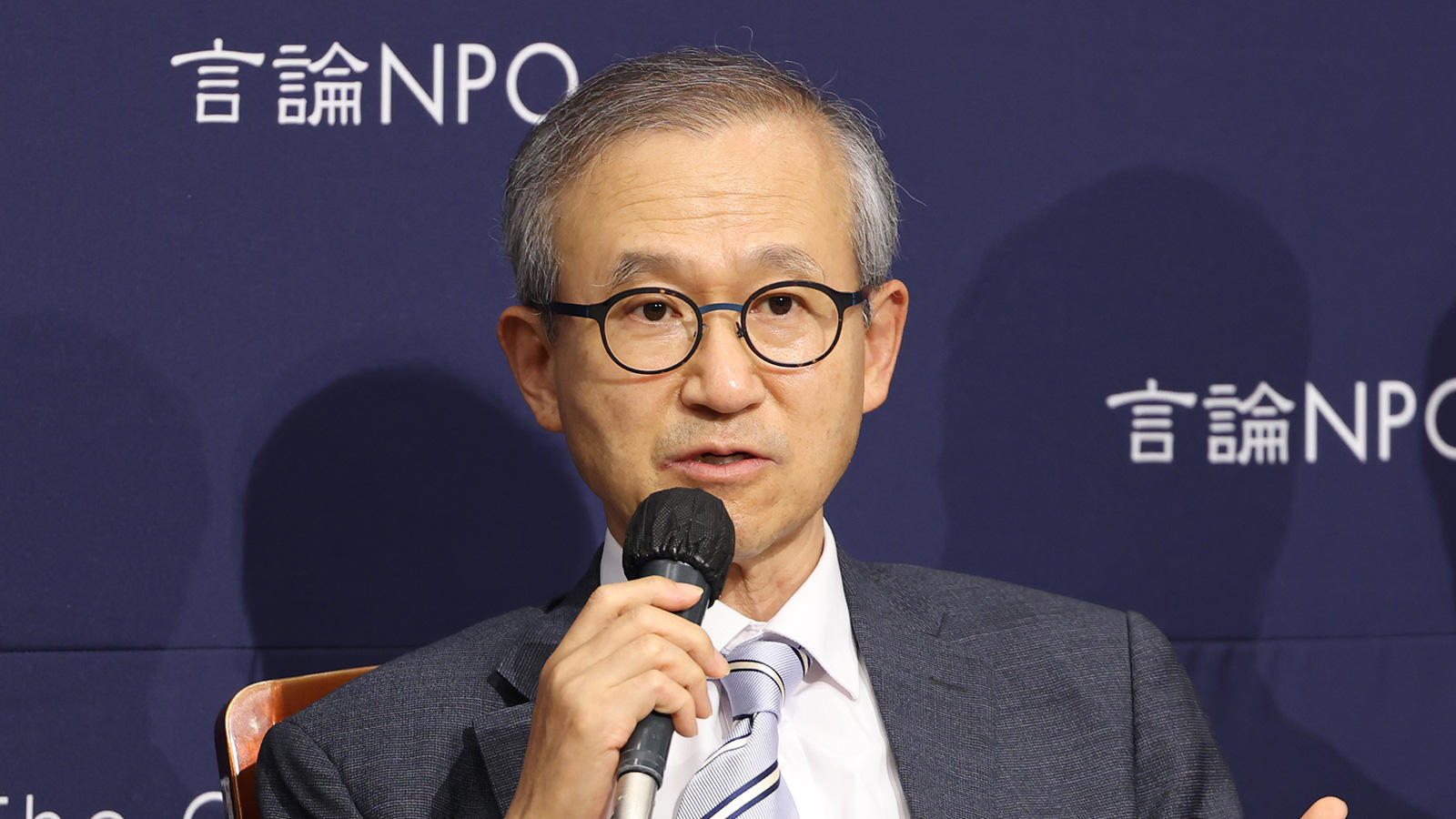
A New Cold War can be avoided, but all must make the effort to prevent crises from escalating into conflict
Next to speak was Senior Colonel (ret.) Gaoyue Fan, Former Chief Specialist at the PLA Academy of Military Science. Fan began with some harsh criticism aimed at the US, Japan, and the ROK in terms of the current situation in Northeast Asia.
First, Fan stated that the US is pushing forward with an Indo-Pacific strategy that involves it and its allies containing China militarily. In addition, it is transforming its bilateral alliances with Japan and the ROK into a trilateral alliance in order to deter China, Russia, and North Korea, and moreover, the US, Japan, and the ROK have increased their defense budgets to a level higher than ever before, thereby sparking an arms race in the region. Finally, the US has also launched the Indo-Pacific Economic Framework for Prosperity in an attempt to exclude China from economic cooperation in the region, and is implementing its "small yard, high fences" technology doctrine to hinder Chinese development there as well.
Fan suggested that the de facto military alliance between North Korea and Russia with the signing of the Treat on Comprehensive Strategic Partnership was a counter to the deterrent power resulting from the Japan-US-ROK alliance. That being said, Fan believes that there is little possibility of a New Cold War breaking out in Northeast Asia, and he explained.
First, he described the Cold War as the result of the bipolar "US versus Soviet Union" geopolitical structure of the era. In contrast, he sees the current system as being unipolar, with the US as the only superpower, with the system likely to become multipolar in the future, and revolving around the US, China, India, Russia, the UK, Japan, and the EU.
Next, the Cold War saw the world divided into two ideological blocs representing the East in the Warsaw Pact and the West in NATO. As only NATO remains, Fan believes that a comparable opponent would be impossible to find even if NATO or the Japan-US-ROK alliance wanted to launch a New Cold War in Northeast Asia.
Thirdly, Fan predicted that the majority of people would be opposed to a New Cold War that divided the world and forced countries to take sides, due to the economic interdependence that has resulted from expanded globalization.
Fan also indicated that neither of the governments likely to become the core of the blocs that formed in a New Cold War - i.e., the US and China - actually want such an eventuality to occur.
Finally, he pointed out that the United Nations General Assembly, the Security Council, the WTO, WHO, and other international organizations are playing a larger role in resolving international disputes now than they did during the Cold War, and some countries are relying less on bloc politics.
Fan explained that, despite the risks, a New Cold War in Northeast Asia can be avoided. To do so, he recommended that the countries of Northeast Asia reduce hostilities through government dialogue and military exchanges that increase individual interactions and lead to mutual understanding and trust-building.
Fan believes that every effort should be made to use current communication channels and systems to prevent the escalation of threats and friction into conflict and confrontation.
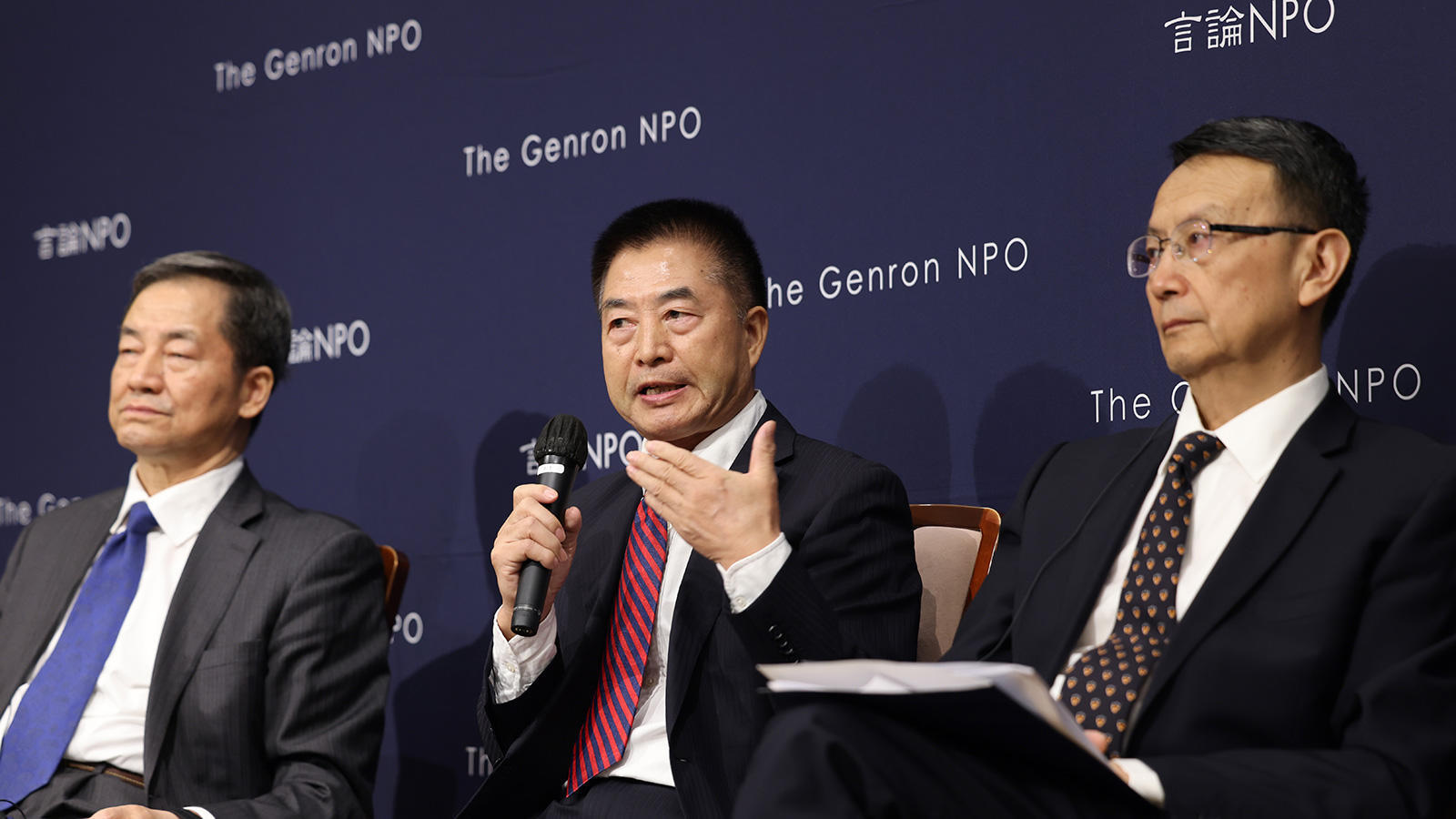
Learn from the INF Treaty by negotiating from the perspective of balance
The final keynote speech of the session was provided by Admiral (ret.) Katsutoshi Kawano, former Chief of Staff of the Japan Self-Defense Forces. Kawano began by reflecting that the tensions on the Korean Peninsula over North Korea's missile and nuclear weapon programs peaked in 2017.
"The Japanese public at the time felt a considerable sense of crisis. Ballistic missile defenses consisted of sea-based Aegis-launched interceptor missiles and land-based PAC3 surface-to-air missiles operated by ground forces, but these were not thought to be sufficient, so there was an effort to introduce a three-tiered system that harnessed Aegis Ashore. It was that sense of crisis behind the decision to introduce this system, not the Ministry of Defense or the Self-Defense Forces. Public opinion polls showed that 70% were in favor," he explained.
He noted at the time the Japanese, US, and ROK policy towards North Korea was the "Complete, Verifiable and Irreversible Dismantlement (CVID)" of its nuclear program, and that after talks failed, "We should have returned to CVID, but President Trump suddenly lost interest in North Korea. Then, after suspending the US-ROK military exercises and seeing the short-range missile launches as a non-issue, we ended up giving North Korea a free hand."
He also pointed out that Japan cancelled the introduction of Aegis Ashore as well.
Kawano stated that the world is witnessing a situation that the writers of the NPT never envisioned, with a nuclear-armed Russia threatening to use nuclear weapons against Ukraine, which has no nuclear arsenal. Kawano stated that this has "given North Korea the green light to possess nuclear weapons." While the talks had North Korea "in a corner" in 2017, the situation has changed completely, and Kawano believes that North Korea abandoning its nuclear program is no longer a viable objective to have.
"Assuming that North Korea will continue to possess nuclear weapons," Kawano continued. "We must create a situation that renders such possession meaningless. In other words, the US must function as an effective deterrent so that North Korea cannot use their nuclear weapons."
Kawano explained that to do that will require "taboo-free discussion." The Intermediate-Range Nuclear Forces (INF) Treaty could provide a lesson to learn from, he added, as after an initial rise of tensions, the INF Treaty eventually led to a state of equilibrium. In a similar way, he emphasized that negotiations with North Korea should be re-started after finding balance. However, he suggested that this is an issue for all of Northeast Asia to deal with, so bilateral talks between the US and North Korea should be avoided.
"Six-party talks would be ideal, but it would not be practical to include Russia at this time, so a five-party framework should be built for negotiations to be carried out," Kawano proposed.
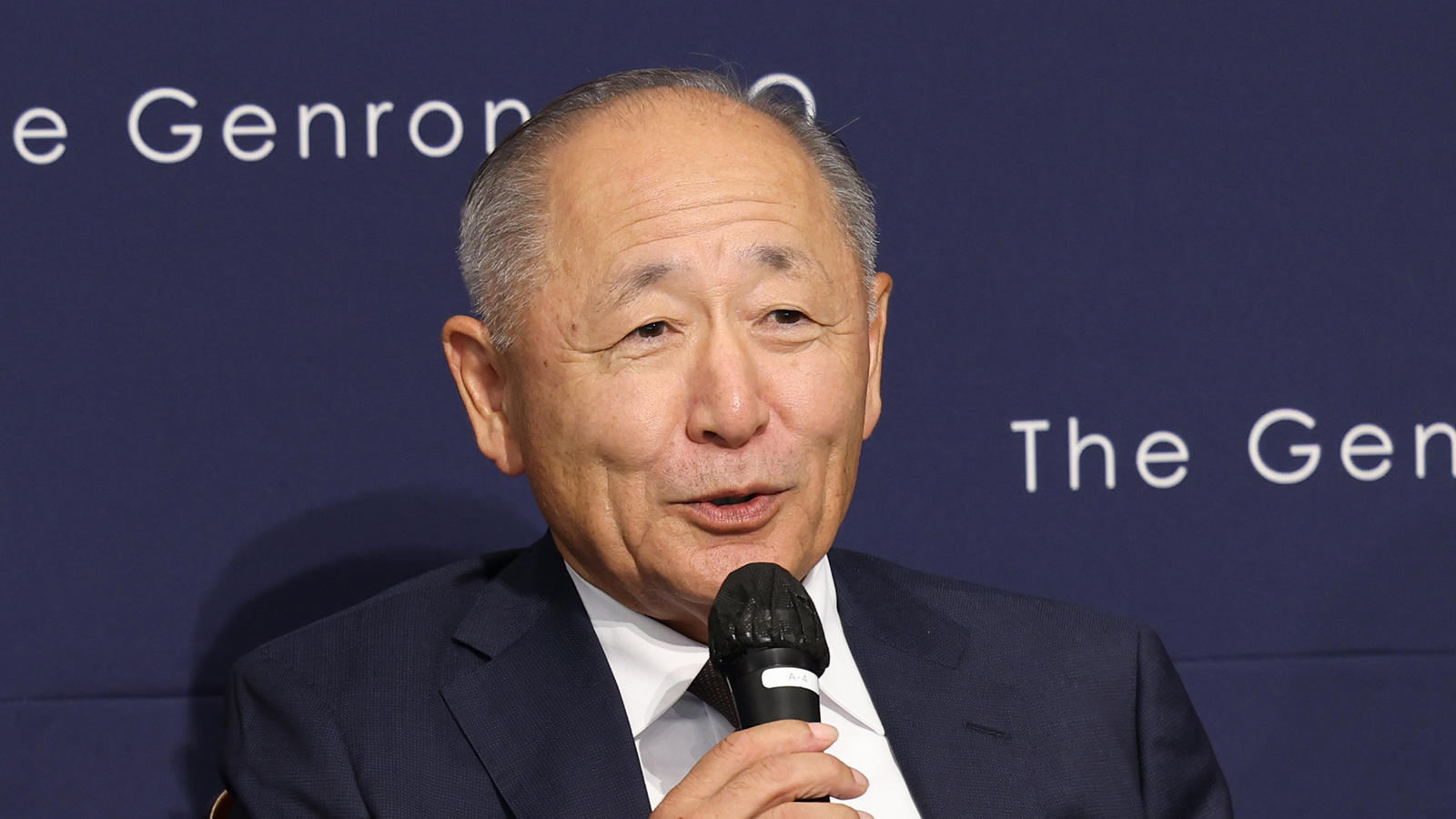
Rather than view the Cold War negatively, efforts should be made to prevent it from becoming a hot war.
A discussion of the issues raised was held after the speeches, and upon its conclusion, the first four speakers were asked to close the session with final comments.
Roughead told the attendees that the region needs to think about the times in which we are living. Even if the situation isn't analogous to a "New Cold War," it remains an unhealthy one if those involved are not working together to define it.
"We are living in a new era," he added, and pointed out that the primary challenges being faced are in the response to increasingly complex technologies. In order to better cope in a completely new era, we need to look to the future, and not simply look to the past for lessons to be learned.
Lim proposed that the world is now in an era of interconnection rather than a New Cold War, pointing to the economic interdependence of countries and the interconnected nature of conflicts occurring in different regions. Responding to a comment made during the discussion, Lim added that although some believe that decoupling of the US and Chinese economies is impossible, he is concerned that the US pursuit of strategic independence from China is synonymous with decoupling.
Fan pointed to the resumption of high-level talks between the US and China as a sign of positive change. He added that analysis of documents published by the US government shows that it clearly distinguishes the countries of China, Russia, and North Korea as separate from each other. This suggests that the US does not see the three countries as part of a single bloc, so to Fan, that is evidence that the US is not seeking to launch a New Cold War.
Kawano pointed out that while the term Cold War has a negative connotation, there were some positive aspects to it. Unlike a hot war, the Cold War era was to a certain extent stable, and much effort was put into avoiding conflict. He also suggested that this stability enabled Japan to concentrate on its own economic development. A number of conflicts arose following the end of the Cold War, including the Gulf War, the Iraq War, and the 9/11 attacks on the USA, which is why Kawano believes that seeing a Cold War as negative should be avoided. The focus should be placed on making the effort to avoid the outbreak of a hot war.
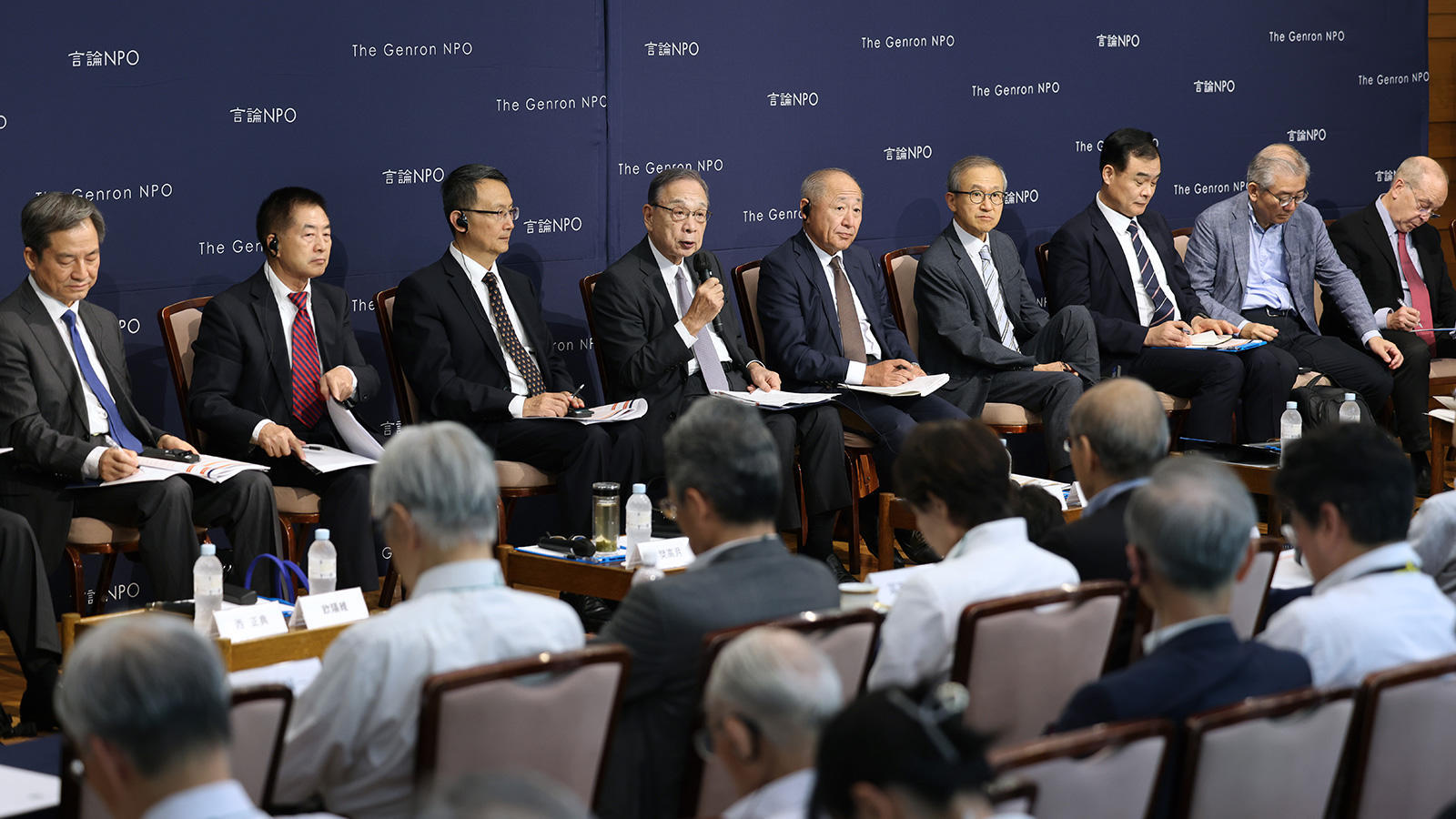
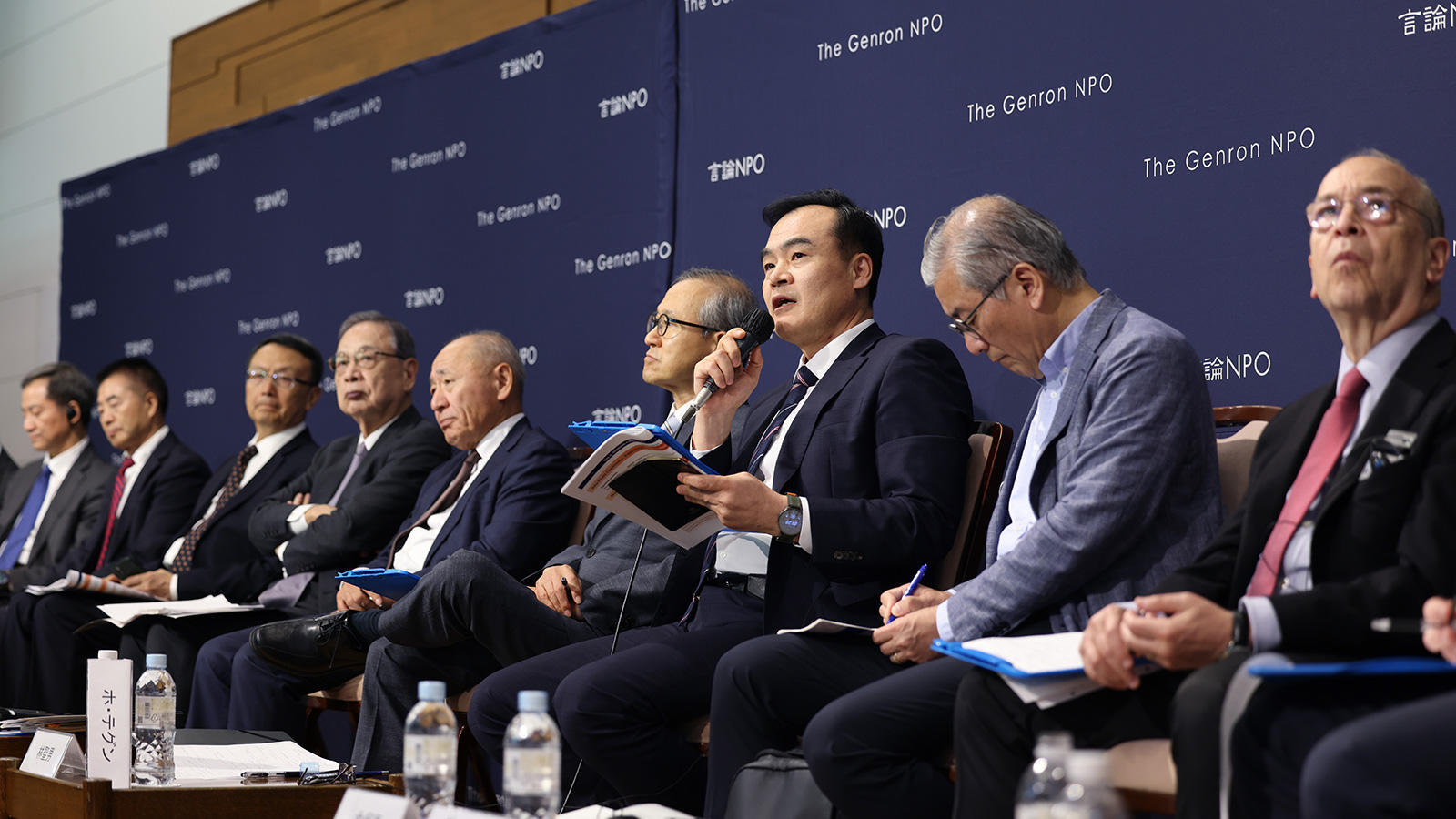
Post a comment